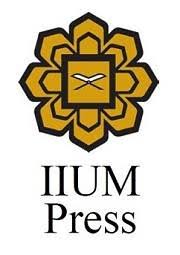المنهج النبوي في صناعة القدوة الحسنة من جيل الصحابة دراسة تحليلية
The Prophetic Method in Cultivating Exemplary Role Models from the Companions: An Analytical Study
DOI:
https://doi.org/10.31436/alburhn.v9i1.364Keywords:
Prophetic Methodology, Cultivation, Exemplary Role Models, Generation of the Companions, Analytical Study.Abstract
This research aims to shed light on the Prophetic approach to shaping and cultivating exemplary role models from the generation of the Companions. This process played a pivotal role in building the Muslim nation and preparing its leaders. The Prophet ﷺ dedicated great attention to developing individuals who could serve as ideal examples in faith, behavior, and values, making this a fundamental priority in his educational and guidance methodology.
The study adopts both the inductive and analytical methodologies. The researchers gathered various narrations that highlight the Prophet’s ﷺ methods in fostering role models among his Companions, relying on multiple sources, including books of hadith, prophetic biography, Islamic history, and relevant contemporary references. After compiling the material, the researchers analyzed selected examples using a rigorous scientific approach to derive the key characteristics and mechanisms employed by the Prophet ﷺ in this regard.
One of the study’s most significant findings is that the Prophetic methodology in shaping exemplary figures was characterized by comprehensiveness and integration. It was not confined to a single aspect but encompassed spiritual, educational, social, and behavioral dimensions. This holistic approach had a profound impact on forming an ideal society founded on noble ethics and sincere devotion. As a result, the Companions became exemplary figures across generations, solidifying their distinguished status in Islamic history.
Downloads
References
Al-Maṣādir wa al-Marājiʿ (Sources and References)
Ibn Aḥmad al-Afandī, Saʿd. (1428H/2008). Qawāʿid al-Manhaj ʿinda Ibn al-Wazīr al-Yamānī bayn al-Naẓariyyah wa al-Taṭbīq (1st ed.). Cairo: Muʾassasat al-Mukhtār.
Ibn Jumʿah ibn ʿUthmān al-Kharrāz, Khālid. (1430H/2009). Mawsūʿat al-Akhlāq (1st ed.). Kuwait: Maktabat Ahl al-Athar li-l-Nashr wa al-Tawzīʿ.
Ibn Ḥajar al-ʿAsqalānī, Abū al-Faḍl Aḥmad ibn ʿAlī ibn Muḥammad. (1415H). al-Iṣābah fī Tamyīz al-Ṣaḥābah. Taḥqīq: ʿĀdil Aḥmad ʿAbd al-Mawjūd wa ʿAlī Muḥammad Muʿwaḍ. (1st ed.). Beirut: Dār al-Kutub al-ʿIlmiyyah.
Ibn Ḥanbal, Aḥmad. (1438H). Musnad Aḥmad. Taḥqīq: Shuʿayb al-Arnaʾūṭ. (1st ed.). Publisher: Muʾassasat al-Risālah.
Ibn ʿAbd Allāh ibn Ḥumayd, Ṣāliḥ. (n.d.). Naḍrat al-Naʿīm fī Makārim Akhlāq al-Rasūl al-Karīm ﷺ. (4th ed.). Jeddah: Dār al-Wasīlah li-l-Nashr wa al-Tawzīʿ.
Ibn ʿAbd Allāh ibn Ḥumayd, Ṣāliḥ. (1415H). al-Qudwah: Mabādiʾ wa Namādhij. (n.d.). Published on the website of the Saudi Ministry of Islamic Affairs without further details.
Ibn Mājah, Abū ʿAbd Allāh Muḥammad ibn Yazīd al-Qazwīnī. (n.d.). Sunan Ibn Mājah. Taḥqīq: Muḥammad Fuʾād ʿAbd al-Bāqī. (n.d.). Publisher: Dār Iḥyāʾ al-Kutub al-ʿArabiyyah, Fayṣal ʿĪsā al-Bābī al-Ḥalabī.
Ibn Manẓūr, Muḥammad ibn Mukarram ʿAlī al-Afrīqī. (1414H). Lisān al-ʿArab. (3rd ed.). Beirut: Dār Ṣādir.
Jawād al-Ṭāhir, ʿAlī. (1970). Manhaj al-Baḥth al-Adabī. Baghdad: Maṭbaʿat al-ʿĀnī.
Abū al-Ḥusayn, Muslim ibn al-Ḥajjāj al-Qushayrī al-Naysābūrī. (1388H). Ṣaḥīḥ Muslim. Taḥqīq: Muḥammad Fuʾād ʿAbd al-Bāqī. (n.d.). Cairo: Maṭbaʿat ʿĪsā al-Bābī al-Ḥalabī wa Shurakāʾuh.
Abū Dāwūd, Sulaymān ibn al-Ashʿath ibn Isḥāq. (1392H). Sunan Abī Dāwūd. Taḥqīq: Muḥammad Muḥyī al-Dīn ʿAbd al-Ḥamīd. (n.d.). Beirut: al-Maktabah al-ʿAṣriyyah, Ṣaydā.
Abū al-ʿAbbās, Shihāb al-Dīn Aḥmad ibn Yūsuf ibn ʿAbd al-Dāʾim. (1417H/1996). ʿUmdat al-Ḥuffāẓ fī Tafsīr Ashraf al-Alfāẓ. Taḥqīq: Muḥammad Bāsil ʿUyūn al-Sūd. (1st ed.). Publisher: Dār al-Kutub al-ʿIlmiyyah.
Al-Bukhārī, Muḥammad ibn Ismāʿīl ibn Ibrāhīm. (1422H). Ṣaḥīḥ al-Bukhārī. (1st ed.). Beirut: Dār Ṭawq al-Najāh.
Badawī, ʿAbd al-Raḥmān. (1977). Manāhij al-Baḥth al-ʿIlmī. (3rd ed.). Kuwait: Wakālat al-Maṭbūʿāt, Shāriʿ Fahd al-Sālim.
Al-Bayānūnī, Muḥammad Abū al-Fatḥ. (1412H/1991). al-Madkhal ilā ʿIlm al-Daʿwah (n.d.). Beirut: Muʾassasat al-Risālah.
Al-Tirmidhī, Abū ʿĪsā Muḥammad ibn ʿĪsā. (1996). Sunan al-Tirmidhī. Taḥqīq: Bashshār ʿAwwād Maʿrūf. (1st ed.). Beirut: Dār al-Gharb al-Islāmī.
Al-Tahānawī, Muḥammad ibn ʿAlī ibn al-Qāḍī. (1996). Mawsūʿat Kāshif Iṣṭilāḥāt al-Funūn wa al-ʿUlūm. (1st ed.). Taḥqīq: Dr. ʿAlī Daḥrūj. Beirut: Maktabat Lubnān Nāshirūn.
Al-Jurjānī, ʿAlī ibn Muḥammad ibn ʿAlī al-Zayn al-Sharīf. (1403H/1983). al-Taʿrīfāt. Taḥqīq: Jamāʿat min al-ʿUlamāʾ bi-Ishrāf al-Nāshir. (1st ed.). Beirut: Dār al-Kutub al-ʿIlmiyyah.
Al-Jawharī, Abū Naṣr Ismāʿīl ibn Ḥammād al-Fārābī. (1407H/1987). al-Ṣiḥāḥ Tāj al-Lughah wa Ṣiḥāḥ al-ʿArabiyyah. Taḥqīq: Aḥmad ʿAbd al-Ghafūr ʿAṭṭār. (4th ed.). Beirut: Dār al-ʿIlm li-l-Malāyīn.
Al-Rāzī, Zayn al-Dīn Abū ʿAbd Allāh Muḥammad ibn Abī Bakr. (1420H/1999). Mukhtār al-Ṣiḥāḥ. Taḥqīq: Yūsuf al-Shaykh Muḥammad. (5th ed.). Beirut: al-Maktabah al-ʿAṣriyyah - al-Dār al-Namūdhajiyyah.
Downloads
Published
How to Cite
Issue
Section
License
In general, reusing or reproducing substantial portions of al-Burhān content requires permission. This includes the use of text, figures, tables, multimedia content, and any other material published in any issues of al-Burhān Journal of Qur'an and Sunnah Studies. For some instances, al-Burhān may make its content freely viewable; however, such material may require permission for reuse. To seek permission, please contact the editorial.









